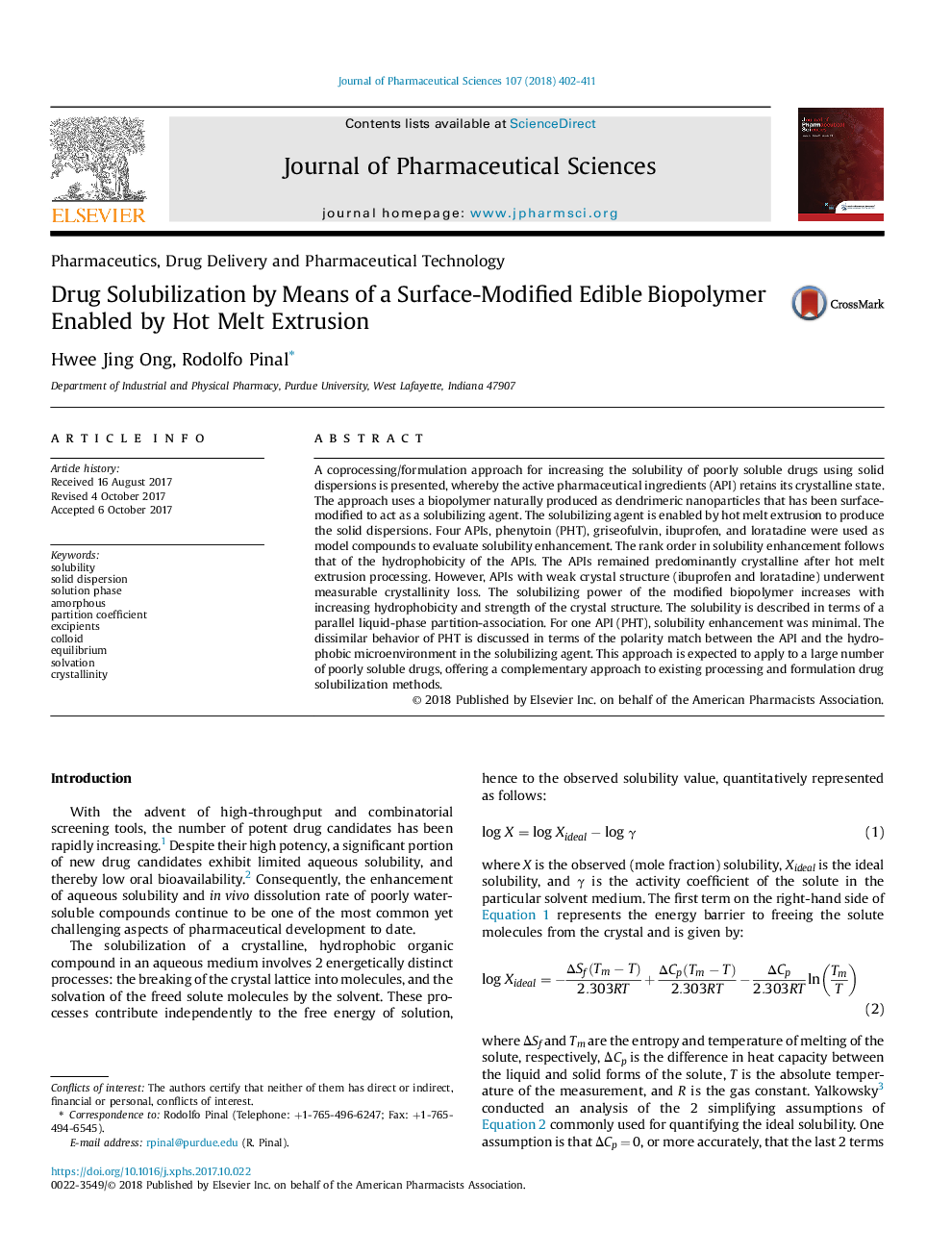| Article ID | Journal | Published Year | Pages | File Type |
|---|---|---|---|---|
| 8513653 | Journal of Pharmaceutical Sciences | 2018 | 10 Pages |
Abstract
A coprocessing/formulation approach for increasing the solubility of poorly soluble drugs using solid dispersions is presented, whereby the active pharmaceutical ingredients (API) retains its crystalline state. The approach uses a biopolymer naturally produced as dendrimeric nanoparticles that has been surface-modified to act as a solubilizing agent. The solubilizing agent is enabled by hot melt extrusion to produce the solid dispersions. Four APIs, phenytoin (PHT), griseofulvin, ibuprofen, and loratadine were used as model compounds to evaluate solubility enhancement. The rank order in solubility enhancement follows that of the hydrophobicity of the APIs. The APIs remained predominantly crystalline after hot melt extrusion processing. However, APIs with weak crystal structure (ibuprofen and loratadine) underwent measurable crystallinity loss. The solubilizing power of the modified biopolymer increases with increasing hydrophobicity and strength of the crystal structure. The solubility is described in terms of a parallel liquid-phase partition-association. For one API (PHT), solubility enhancement was minimal. The dissimilar behavior of PHT is discussed in terms of the polarity match between the API and the hydrophobic microenvironment in the solubilizing agent. This approach is expected to apply to a large number of poorly soluble drugs, offering a complementary approach to existing processing and formulation drug solubilization methods.
Keywords
Related Topics
Health Sciences
Pharmacology, Toxicology and Pharmaceutical Science
Drug Discovery
Authors
Hwee Jing Ong, Rodolfo Pinal,
